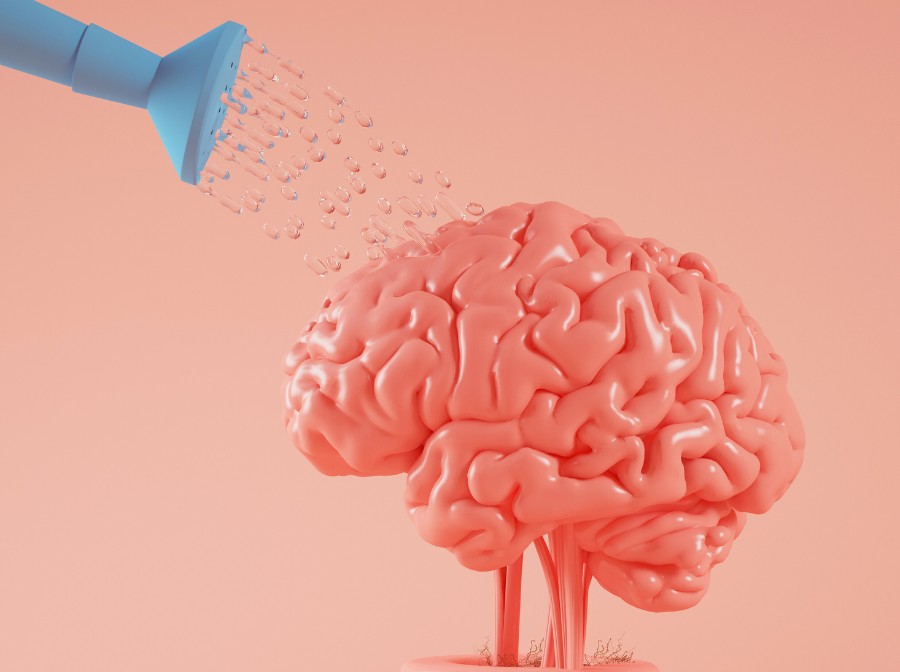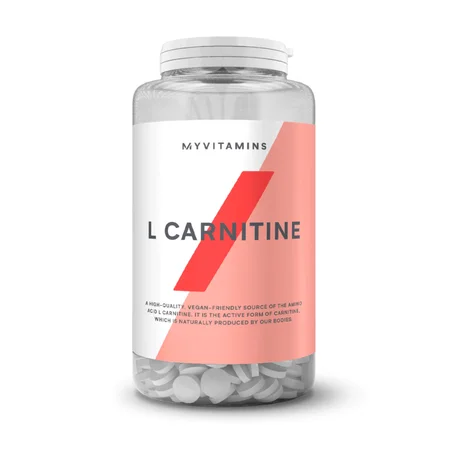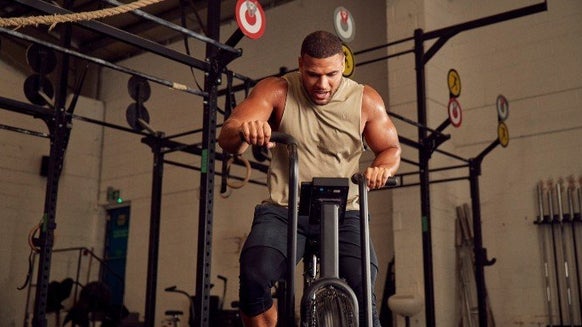
As we age, moving our bodies and utilizing our minds becomes more difficult—aging is associated with declining performance in both mental and physical activities.
One factor that may worsen this decline is mental fatigue. Fatigue is defined as a state of mind that’s brought about by performing too many cognitive tasks. When you’re fatigued you typically feel tired, drained, and unmotivated. Although cognitive demand is what causes fatigue, the phenomenon can negatively impact both cognitive and physical performance.1
With already weakened abilities, older adults are especially vulnerable to the effects of fatigue.
To try and address this issue, a recent study looked at the effects of brain endurance training on older adults. But before we evaluate their findings, let’s dive deeper into this specific training method…
Jump to:
What is Brain Endurance Training?

Research has shown that fatigue often reduces our ability to perform well in endurance activities.
Brain endurance training or BET is based on the concept that training while mentally fatigued might help build resilience, allowing athletes to handle the effects of fatigue better and improve future performance.2
An Italian researcher named Samuele Marcora introduced this concept in 2014. BET is based on two main ideas. First, endurance performance is often limited by how much effort we feel we’re putting in, especially for highly motivated individuals.
Second, mental fatigue heightens this feeling of effort, which can lead to poorer endurance performance. By practicing endurance activities under conditions of mental fatigue, athletes may learn to manage the increased perception of effort, making it feel easier over time. BET combines mentally challenging tasks with physical exercise to improve endurance by building mental resilience.2
BET has already been shown to improve both cognitive and exercise performance among young, physically active adults.
But the question is, would we see this same effect within an older population? This leads us to the study…
The Study
A first-of-its-kind study, titled “Brain endurance training improves sedentary older adults’ cognitive and physical performance when fresh and fatigued” and published in Psychology of Sport and Exercise, investigated the effect of brain endurance training on cognitive and physical performance in older adults.1
Researchers divided 24 healthy sedentary women (65–78 years old) into three different training groups: BET, exercise training, and control (no training).
The BET and exercise training groups completed the same physical training protocol, which included three 45-minute exercise sessions—20 minutes of resistance training and 25 minutes of endurance training—per week for eight weeks.
The exercises included arm curls for upper body resistance, squats for lower body resistance, and walking for aerobic exercise.

The BET group also completed a 20-minute cognitive task before their exercise tasks.
The cognitive tests consisted of tests for response inhibition, a core cognitive function, and simple reaction time—how quickly participants could respond to a visual signal.
To measure response inhibition, participants were given the Brief Stroop Task, named after the psychologist who discovered it. In this task, participants read aloud as many words as possible, but with a twist: the words and their meanings conflicted (for example, the word "blue" might be written in red ink).
A researcher corrected them when they made a mistake, and they continued until they got it right. The score was the number of correct words they read aloud.
To measure simple reaction time, the participants completed a Brief Psychomotor Vigilance Task.
For this test, a visual stimulus appeared randomly every 1 to 4 seconds, and participants had to tap the screen as quickly as possible when they saw it.
If they tapped too early, before the stimulus appeared, a “false start” message would display. Their performance was measured by how fast they reacted, in milliseconds.
The researchers tested the cognitive and physical performance of all groups while they were feeling fresh and fatigued before, during, and after the experiment.1
The Results
The results of the study showed that both the brain endurance training and regular exercise groups performed better than the control group on cognitive and physical tasks, whether they were fresh or fatigued, during the middle and at the end of the study.
However, the BET group consistently outperformed the regular exercise group on cognitive tasks when fatigued, and often outperformed them on physical tasks too.
Additionally, participants from the BET group reported that exercise like walking felt easier and reduced their fatigue after BET training.
Further, the results showed that BET improved fatigue resilience and performance when the tasks were performed in a fatigued state—following a long and demanding cognitive task.1
These results support the idea that BET is the most effective training method to improve the cognitive and physical performance of older adults.
Researchers also found that BET improved fatigue resilience and performance when the tasks were performed following a long and demanding cognitive task.
Practical Implications

As people age, they often experience a decline in mental and physical abilities, which can affect their independence, well-being, and overall quality of life.
Regular physical activity can help counteract these effects and improve health and independence. However, combining mental and physical training through BET can benefit older adults’ cognitive and physical abilities more than doing either type of training alone.
Researchers speculate that these improvements in cognitive and physical functioning should increase health span and lower the risk of accidents and falls among older adults by improving balance.
Ultimately, the researchers confirmed that BET helped older adults develop resilience to mental fatigue and reprogram the relationship between exercise and perceived effort.1
Take Home Message
Fatigue can play a significant role in worsening cognitive and physical abilities, and in turn, quality of life among older adults. But with brain endurance training, everyone, both young and old, can improve physical and mental performance and function, making daily tasks and exercise easier and more enjoyable.
READ THESE NEXT:

Study Shows Incentive Program Promotes Exercise in the Workplace
Regular exercise at work helps reduce stress......

Study Shows Dopamine Boost During Exercise Can Help Your Brain Perform Better
See the latest research on how exercise can help your brain perform better....

Nine Seconds Of Exercise A Week Can Increase Strength, Study Finds
This is a game changer....
A Rutgers University Honors graduate, Jamie grew up on the Jersey shore and double majored in Comparative Literature and Anthropology in college. Jamie is an experienced writer in the health and wellness, biotech, and eCommerce fields. She loves writing with a purpose and has even written for the Department of Justice.
Jamie became drawn to exercise during her time in university and began to notice the physical and mental benefits of moving your body daily. Today, Jamie enjoys Pilates, light weight training, and going on long walks in nature daily.
Jamie is also passionate about eating right and prioritizing gut health and immunity. She is always trying the next innovation in health and wellness. When she’s not writing articles, Jamie enjoys reading, playing guitar, and finding dogs to play with.
- Jesús Díaz-García, Tomás García-Calvo, Christopher Ring, Brain endurance training improves sedentary older adults’ cognitive and physical performance when fresh and fatigued, Psychology of Sport and Exercise, Volume 76, 2025, 102757, ISSN 1469-0292, https://doi.org/10.1016/j.psychsport.2024.102757 (https://www.sciencedirect.com/science/article/pii/S1469029224001687)
- Dallaway, N., Lucas, S., Marks, J. and Ring, C. (2023), Prior brain endurance training improves endurance exercise performance. European Journal of Sport Science, 23: 1269-1278. https://doi.org/10.1080/17461391.2022.2153231











